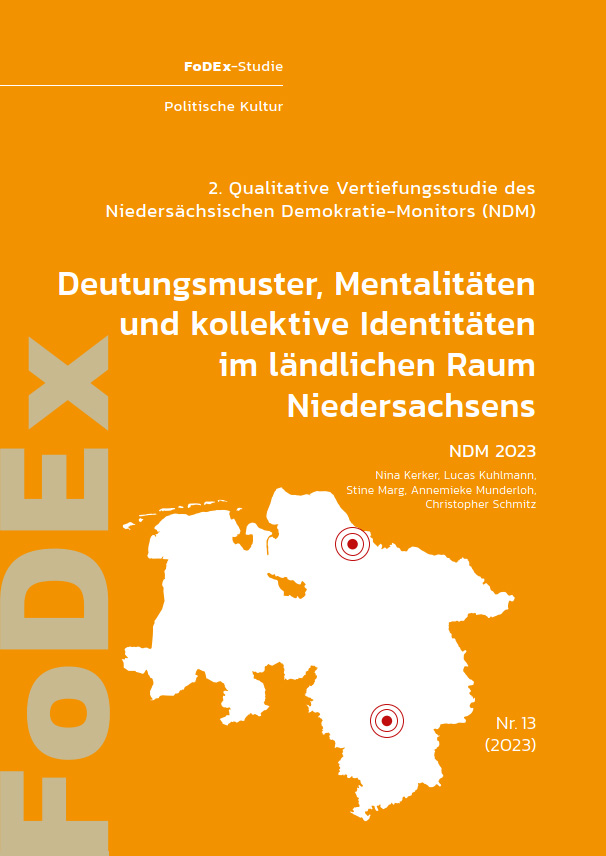With this second qualitative in-depth study of the Lower Saxony Democracy Monitor (NDM 2022), we address, among other issues, the question of support for democracy in Lower Saxony, which was already raised in the second Democracy Monitor (NDM 2021). To investigate this, we selected two regions in which support for central elements of democracy is particularly high on the one hand (Rosengarten in the district of Harburg) and remarkably low on the other (Einbeck in the district of Northeim). Through a comparative case study based on field visits and focus groups, we measured, among other aspects, whether proximity or distance to service-oriented areas has an influence on the political interpretation patterns of the Lower Saxon residents surveyed. We also examined the extent to which there is a polarization in Lower Saxony between a more particularistic rural population and a more universalistic urban population. As significant findings, we were able to confirm the "petty-bourgeois attitude" of Lower Saxony's citizens, which had already been described in the first qualitative in-depth study of the Lower Saxony Democracy Monitor. In addition, we identified three patterns of interpretation (a technocratic view of politics, a perceived threat to one's own living environment and concern about the decline of democracy) that underlie this mentality and thus form an integral part of the political culture of the regions studied.





